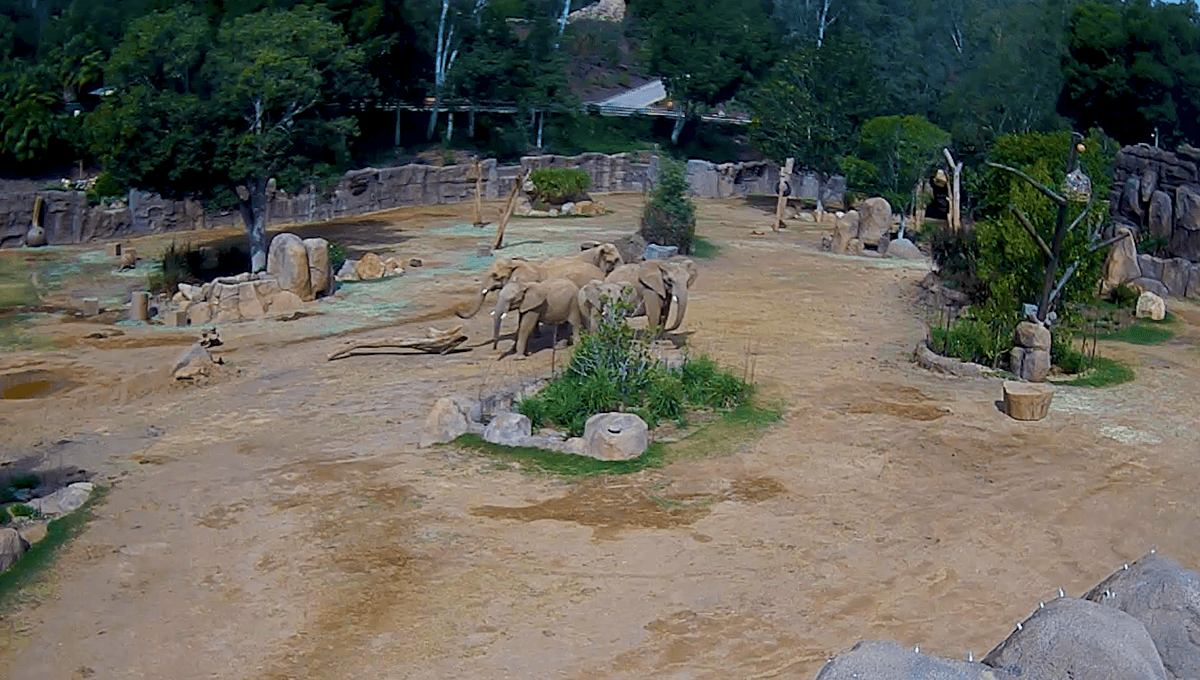
Last week, as is its wont, Southern California experienced an earthquake. Rated a magnitude 5.2 by the United States Geological Survey (USGS), the quake was strong enough to unnerve, but not so bad as to result in much damage. But that didn’t stop one particular group of residents from mounting an emergency defense.
“Elephants have the ability to feel sound through their feet,” explains Mindy Albright, curator of mammals at the San Diego Zoo Safari Park. “But we can’t say for sure that they knew the earthquake was coming. From the footage, it looks like they would have reacted around the same time humans did.”
But rather than “drop, cover, and hold on”, the elephants at San Diego Zoo Safari Park in Escondido, California, were caught on camera forming an “alert circle” – an “instinctive behavior” in which the adults in the herd “join together and circle the calves, facing outward to confront any potential predators,” Albright tells IFLScience.
“The herd’s instinct is to protect their youngest and the herd as a whole,” she says. “Times like these, you can see the teamwork and the trust they have in each other.”
As the ground starts to shake, we see Ndlula, Umngani, and Khos – the three adults of the herd – scan the area and rush toward Zuli and Mkhaya, the two 7-year-old sibling calves. It’s not too different from how elephants live in the wild, where herds comprise sisters, aunts, mothers, and grandmothers, all led by a matriarch elephant: “She is usually the oldest and most experienced female in the group,” Albright explains. “The matriarch guides the herd, remembering where and how to find food and water, how to avoid predators, and the best places for shelter.”
“Elephants have a complex social structure,” she tells IFLScience. “Each elephant in the herd has their place in the hierarchy and continues to navigate important social nuances.”
The Escondido herd isn’t quite the same – the three adults are unrelated, making this more of a “found family” than a natural grouping. But they are nevertheless “a cohesive herd,” Albright says, “and [they] count on each other to keep their young safe.”
Just like the human residents of the area, the elephants recovered from the quake pretty quickly. “The elephant herd went back to foraging for food in less than four minutes, though they stayed close together,” Albright tells IFLScience.
“When an aftershock came shortly after, they formed an alert circle once more but dispersed even quicker,” she adds. “They had learned that there was no threat associated with the rumbling.”
Source Link: How Do Elephants React To An Earthquake? Watch And Find Out